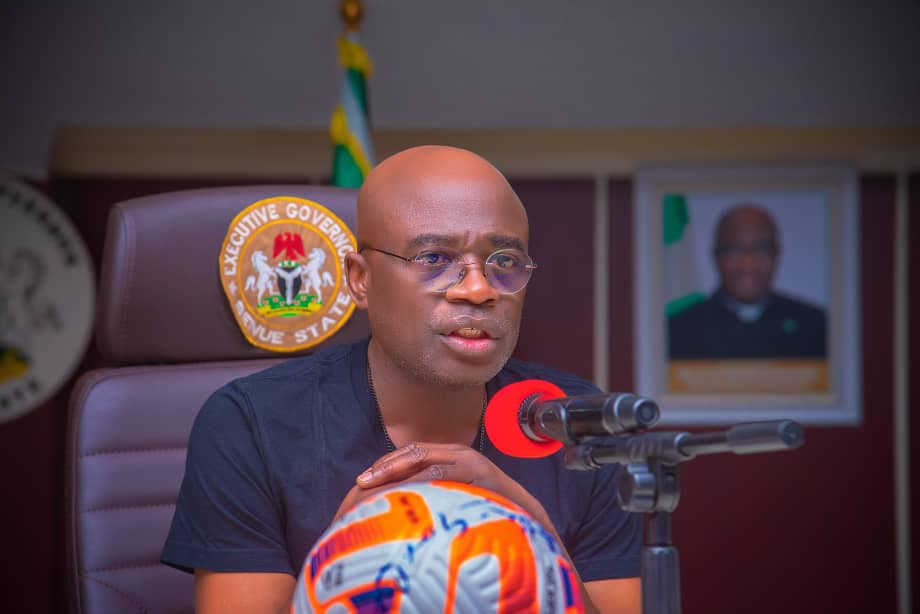The chairperson of the Economic and Financial Crimes Commission (EFCC), Ola Olukoyede, has called on Nigerians in the Diaspora and professionals based in Nigeria and abroad, to desist from helping corrupt Nigerian officials to transfer stolen wealth abroad.
Speaking on Monday at the Canada–Nigeria Legal Exchange Forum, organised by the Canadian Association of Nigerian Lawyers (CANL), at the Intercontinental Toronto Centre, Canada, Mr Olukoyede, slow judicial processes and delayed repatriation of stolen assets by some countries have continued to weaken Nigeria’s anti-corruption drive.
Studies have identified the roles of professionals like lawyers, accountants, real estate professionals and financial advisers in enabling illicit financial flows from Nigeria. Reports by Global Financial Integrity (GFI) and Transparency International (TI) spotlight these patterns.
“Justice delayed is justice denied. Some trials take too long, and certain nations are slow to return stolen assets. Worse still, some professionals enable corrupt officials to launder wealth abroad,” he said, warning that the trend undermines national development and erodes confidence in Nigerian institutions.
His comments were contained in a statement shared with PREMIUM TIMES on Tuesday.
Mr Olukoyede urged Nigerians in Canada — particularly legal, banking, and real estate professionals — to actively support efforts to curb illicit financial flows by reporting suspicious transactions.
“The rising number of Nigerians migrating to Canada could inadvertently create avenues for illicit wealth transfer. Your vigilance is crucial,” he said, warning that silence by diaspora professionals could undermine progress recorded at home.
Studies have identified the roles of professionals like lawyers, accountants, real estate professionals and financial advisers in enabling illicit financial flows from Nigeria. Reports by Global Financial Integrity (GFI) and Transparency International (TI) spotlight these patterns.
Canada has similarly acknowledged that opaque foreign transactions pose risks in its real-estate market.
High-profile asset recovery efforts, such as negotiations over the Abacha loot with Switzerland and the United States, often take years to conclude.
International cooperation
The EFCC chairman also emphasised that international partnerships remain essential to Nigeria’s anti-corruption success.
The commission has recently signed cooperation agreements with the Royal Canadian Mounted Police (RCMP) and law enforcement agencies in Spain, Germany and South Korea, focusing on intelligence sharing, joint investigations, and asset recovery.
Mr Olukoyede said recovered funds have been channelled into national programmes such as the Student Loan Scheme and the Consumer Credit Scheme, as well as into institutions including the NDDC, AMCON, FIRS, and the National Health Insurance Authority.
He said sustained progress in Nigeria’s fight against corruption requires a combination of strong internal reforms and active engagement from Nigerians abroad.
“The fight against corruption is a shared mission. By strengthening internal structures and leveraging the vigilance of our diaspora, we can ensure Nigeria’s resources are protected and its reputation upheld,” he said.
EFCC internal reforms
He outlined several internal reforms introduced since assuming office, aimed at closing operational loopholes, enhancing accountability, and strengthening integrity within the Commission.
According to him, the measures include a Gift Policy, an Exhibit Room Security Policy, and a Sting Operations Policy, designed to curb internal abuses.
The EFCC has also upgraded its Zonal Commands in Lagos, Ekiti, Katsina and Anambra to full directorates to boost operational efficiency and staff progression.
The former Department of Internal Affairs has been restructured and renamed the Department of Ethics and Integrity, reflecting a new zero-tolerance stance on staff misconduct.
READ ALSO: EFCC suspends officers for allegedly extorting N10m from Rapper Oladips
Mr Olukoyede said he declared his assets upon taking office and directed all EFCC personnel to do the same as part of a broader transparency initiative.
To address sophisticated financial crimes, the EFCC has created new specialised units: the Department of Fraud Risk Assessment and Control (FRAC), a Digital Transformation and Innovation Unit, an International Asset Tracing and Recovery Unit, and a Visa and Migration Fraud Section, alongside task forces targeting currency abuse and emerging financial schemes.
According to him, the reforms are yielding results. In the last two years, the Commission secured 7,503 convictions, recovered N566 billion and $411 million, and secured forfeiture of 1,502 real estate assets, including 753 duplexes in Lokogoma, Abuja, and the Nok University complex in Kaduna State, which the government has now converted into the Federal University of Applied Sciences.
He added that recent changes to the EFCC bail system have also strengthened suspects’ rights.












